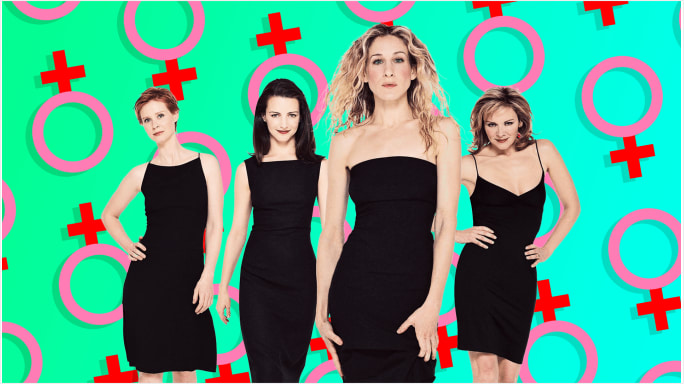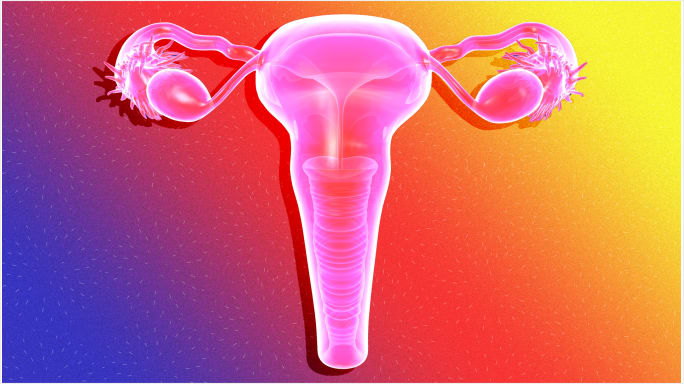For many, a vaginismus diagnosis can feel like a death sentence.
The idea of not being able to ever have sex, something physical therapy and dilators might be able to help with, is quite depressing. The desire to change their body and their fate in the bedroom is often strong, creating feelings of harrowing defeat when progress in treatment is lost (trial-and-error hiccups are a natural part of healing). The term “painful sex” or “pelvic pain disorder” feels limiting and overwhelming. I know this because I’ve been there.
I’ve been diagnosed with a painful sex disorder, and I’ve felt daunted by the words, overwhelmed by the task at hand and hesitant about what to do next.
In my process of understanding my new reality, what I noticed to be the most strange was the terminology associated with it. “Painful sex disorder” seemed like a strange way to describe my vaginismus. It was true that I could not be penetrated vaginally by even a Q-tip, but I wasn’t and never will have painful sex. I consider my condition more of a disability, and less of a life sentence to uncomfortable sexual interactions.
I knew I had vaginismus when I was 12 and I tried using a tampon with my friend. I remember not being able to find a hole at all and it feeling painful when I tried to push against what I wasn’t even sure was my vagina (it was). Since I already had a healthy sexual relationship with myself starting in elementary school, it never occurred to me to include vaginal penetration in my sex.
I knew that sex was supposed to be pleasurable, and I knew how to make myself climax without ever penetrating myself. So even though I knew that the way men and women have sex involves PIV action (something I gathered from my mom and my limited sex education), I never considered working towards vaginal penetration because I knew it would hurt. In my mind, I don’t and I never will have a painful sex disorder because I’ve never had, nor do I ever plan on having, painful sex.
I learned as I grew up and encountered other folks who had vaginismus that many women were actually very heartbroken over their diagnoses. I felt for them, especially since I was dealing with similar high expectations from doctors and society at large. But I couldn’t completely understand their affinity for having sex that was painful for them in order to make progress in their treatment. Save for a short time period in my senior year of college, I wasn’t as insecure nor did I feel that my condition was getting in the way of having pain-free and satisfying sex. I wonder if that is because I’m a trans man, and don’t actually identify with my vagina anyway.
Regardless, once my period of insecurity was over, I began to see my “painful sex disorder” as a “sexual disability.”
Along with my many disabilities, including chronic illnesses, mental illnesses and learning challenges, vaginismus is a part of me and shapes my every day life in some way. It makes me different from other people who have vaginas, people who can have or want to have vaginal sex. But unlike the rest of my disabilities, nothing about my vaginismus has stopped me from getting enjoyment out of my own life. I’m lucky to have a partner and friends who support me and normalize my experience, just as I’ve normalized it for myself for years. But not everyone is on the same path as I am.
Many folks with vaginismus have lovers who push them and doctors who might not support their inability to get a Pap smear or their lack of desire in using dilators. That’s why I think, at the very least, the words we use to describe disorders such as vaginismus need to be more positive and less stigmatizing.
Words are so powerful. They’re the reason I can proudly call myself a trans man, and be affirmed every day by others when they use the pronouns I ask them to use. Assigning words to things, like “toxic” or “abuse” or “self-care” helps us empower ourselves towards positive change and self-love.
Nothing about the term “painful sex disorder” is particularly up lifting. It implies that folks with vaginismus are consigned to a life of either no sex or vaginal sex. These words, like the words society often uses, limits the definition of sex to vaginal sex between a man and a woman. But “painful sex disorder” leaves out queer people and anal sex and really great oral sex. It takes away from all the joy that one experiences in moonlit makeouts, in the taste of a lover’s cum, and in heart-racing public sex. It takes all that joy away and reduces it down to one part of the body not being able to perform one function. That, to me, is just so depressing.
As an extremely sex positive person, I believe people with vaginismus deserve more.
Calling conditions like vaginismus “sexual disabilities” rather than “painful sex disorders” can give folks who have it some of their power back. Sure, they are different from women who can have vaginal sex, but having a disability doesn’t mean your life is over. Having vaginismus doesn’t mean you have to have painful sex. Even if you are so committed to your vaginismus treatment, it doesn’t hurt to have some fun while you wait for results to really materialize. When we use words like “painful sex,” it holds us back. We don’t want to have sex because it’s painful, or we have painful sex in order to work toward less painful sex. But what if we just forgot about the pain part? What if we remembered all the joyous deliciousness that sex has to offer besides the one thing that is hard for us to do? I can guarantee that this realization will be life-enriching, whether you’re pursuing vaginismus treatment or not. Everyone deserves to have pain-free sex, even folks with disabilities.




comments